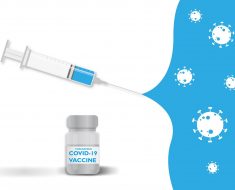NHS doctor on the dangers of smoking
We use your sign-up to provide content in ways you’ve consented to and to improve our understanding of you. This may include adverts from us and 3rd parties based on our understanding. You can unsubscribe at any time. More info
If you make it 12 hours without smoking, the body begins to eradicate carbon monoxide – a poisonous gas – from the body, enabling oxygen levels to increase. If you continue on this path, other health benefits come your way. As pointed out by Stop Smoking London – a campaign supported by the NHS to improve the nation’s health – one full day without smoking can:
- Reduce blood pressure
- Improve circulation
- Reduce your risk of heart disease.
Within two days of being a non-smoker, the receptors in your nerves begin to heal, helping to restore your sense of taste and smell.
If you forgo three days without picking up the unhealthy habit, all the nicotine will now be completely removed from your body.
It’s at this point that nicotine withdrawal might occur, but remember that each craving will pass if you don’t feed the addiction.
Nicotine withdrawal symptoms
The NHS pointed out that you might experience:
- Restlessness
- Irritability
- Frustration
- Tiredness
- Difficulty sleeping or concentrating.
“You may get a chesty cough, but this is positive – it means your body is getting rid of the debris in your lungs,” the NHS clarified.

How to deal with cravings
The NHS advises walking at times when a craving hits, which can be a great distraction.
Other distractions can include trying a new hobby, having a sip of water or orange juice, and keeping yourself busy.
It’ll also help to remember the health benefits of not smoking and how much money you can save or spend on other things.
Completing a whole month of being smoke-free will allow your lungs the time it needed to start healing.
DON’T MISS:
Vitamin B12 deficiency: Changes in three body parts could be a sign [ANALYSIS]
What is normal cholesterol level? 5 food swaps to lower cholesterol [EXPLAINER]
Weight loss: Michael Mosley’s low-carb diet ‘trick’ to lose weight [INSIGHT]
You may find that exercising from this landmark stage becomes easier and easier, as breathlessness starts to fade.
By the nine-month mark, your lungs will have significantly healed as the cilia (the small-like hairs inside of the lungs) will have recovered from the effects of cigarette smoke.
When you reach a whole year without having one puff of a cigarette, your risk of coronary heart disease will be cut in half.
From this point onwards, with every other successful milestone you hit, your risk of coronary heart disease will continue to decrease, thereby increasing your longevity.

Reaching five years without smoking will lead to widened arteries and blood vessels.
This will drastically lower your risk of blood clots and having a stroke later on in life.
At the 10-year landmark, you would have:
- Cut your risk of dying from lung cancer in half
- Reduced your risk of mouth, throat, and pancreatic cancer.
Fifteen years of being a non-smoker means you will have the same chances of developing heart disease as someone who has never smoked.

Your chances of getting pancreatic cancer are the same as a non-smoker too.
Twenty years without lighting up will mean that your risk of dying from a smoking-related cause is now as low as someone who never smoked a cigarette in their life.
Health benefits of quitting
- Improved chances of longevity
- Reduced blood pressure
- Improved circulation
- Improved lung function
- Able to breathe better
- Improved sense of taste and smell
- Reduced risk of numerous cancers
- Reduced risk of cardiovascular disease.
Other benefits of quitting
- Smell better
- More money
- Fresher breath
- Improved self esteem
- Whiter teeth
- Better hearing
- Better vision
- Clearer, younger-looking skin.
Source: Read Full Article





